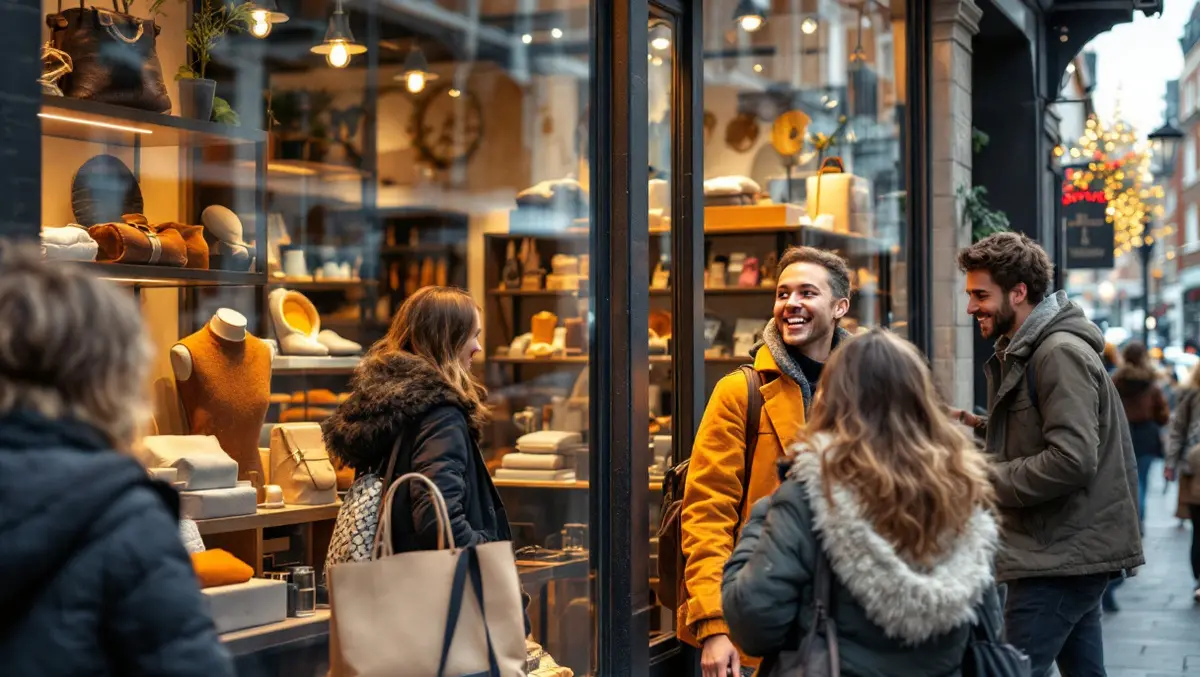
Emotional spending boosts local luxury as Brits shun big brands
British retail is experiencing a shift towards emotional commerce and local luxury purchases, as consumers increasingly prioritise impulse buying based on mood, with a growing preference for locally made products over global luxury brands.
According to Flowwow, a global gifting marketplace for local shops, UK consumers now spend over GBP £41 billion annually on emotion-driven impulse purchases. The trend is particularly pronounced among younger generations, with over 52% of millennials and 42% of Gen Z reportedly making at least one purchase each month primarily based on their feelings at the moment.
Flowwow's findings highlight that these digital-native demographics are browsing and buying by mood rather than traditional cues such as seasons or scheduled sales. The shift coincides with broader economic pressures, as UK household disposable income remains 5.2% below pre-pandemic levels and 64% of adults indicate higher stress levels compared to the previous year.
Social commerce has amplified mood-led purchasing, with platforms like TikTok and Instagram evolving from social influence tools to active shopping destinations. Flowwow projects that the UK's social commerce sector could grow in value to GBP £83.27 billion by 2029. Brands are adapting by creating content resonating emotionally with potential buyers, including behind-the-scenes narratives and gifting formats led by content creators.
Seasonality further drives this impulsive behaviour. Retailers noted increased unplanned spending during the spring and summer months, attributed to factors such as improved weather, heightened social activity, and time-of-year sensitivity. In July 2024, 88% of UK adults reportedly made at least one impulse purchase.
The rise of mood-driven purchasing is altering strategies across the retail sector. Flowwow's data suggest the market is moving towards more personalised engagement, rewarding brands and platforms capable of quickly responding to consumers' emotional signals. This changing landscape is creating opportunities for smaller businesses able to tailor products and services with greater intimacy or local relevance.
As consumer definitions of luxury evolve, British shoppers are placing greater value on provenance, uniqueness, and local roots. The proportion of UK shoppers who choose locally made goods over global luxury brands stands at 41%, representing a 10-point increase since 2023. Purchases of local goods in stores climbed by 6.9% year-on-year in April, and nearly half of UK consumers now make an effort to buy locally produced items.
Additionally, 12% of respondents stated they would pay as much as 22% more for goods made in the UK, preferring authenticity and traceability over international brand prestige. This attitude is visible in sales patterns tracked by Flowwow; between April 2024 and May 2025, the company recorded a 42% growth in sales of flowers and homemade sweets from small-scale British producers. Among these purchases, demand for locally grown peony bouquets surged by 21% year-on-year. The short blooming period of peonies, from May to June, has contributed to their popularity as a form of luxury defined by scarcity and local identity.
Slava Bogan, CEO and co-founder of Flowwow, commented on these changes, stating, "The market is telling us that small is no longer niche — it's strategic. When customers choose local, they're choosing trust, transparency, and traceability. As platforms, we need to build infrastructure that respects the pace and principles of small-scale makers, while not always offering them scale."
The UK luxury market is projected to approach USD $19.05 billion by 2025, and Flowwow's data indicate that growth is increasingly supported by demand for small-scale makers, mood-led purchases, and values-based gifting decisions. These dynamics are challenging the traditional dominance of established luxury brands, favouring businesses and products that match the shifting emotional and ethical considerations of British consumers.


